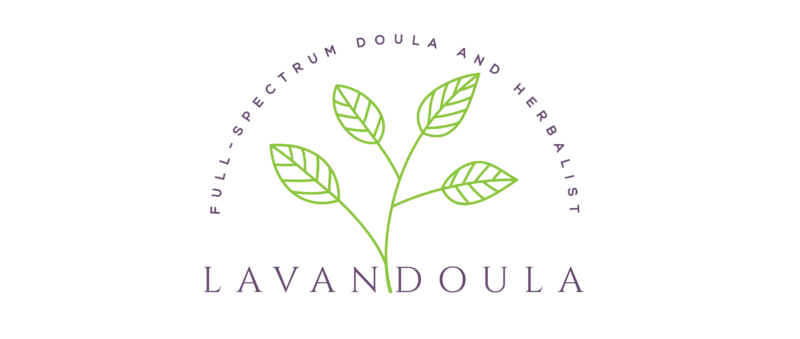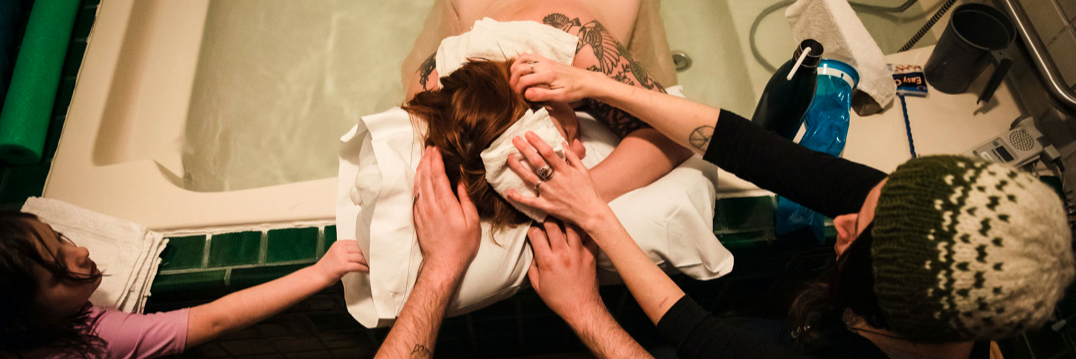Interview with a birth worker
My dear client Rachel at Healthy Chicks interviewed me for her blog long ago. I wanted to share that here and also crosspost because I often get questions like, “How did you get into this?” and “What’s your philosophy on X?” If you’re curious to hear more from me, read on…
R.K.: For someone who has never heard of one, what the heck is a doula anyway? In a nutshell, what do you do for your clients?
E.O.: A doula is basically an advocate and support for somebody in pregnancy, birth and postpartum – a strictly non-medical role. I want to clear up any misconceptions about the term – “doula” actually comes from the Greek word for “female slave.” A lot of doula training and certifying organizations water this down to say it historically means “women’s helper.”
The word “doula” only came into Western consciousness as a term for birth workers in the early 1970s. Truth is, throughout history, people have always had others (even just siblings, neighbors, family members) support their birth experiences. Given the state of modern maternity care, I think having a dedicated advocate in a hospital setting is pretty integral. In the U.S., healthy low-risk childbirth is actually the most common reason for hospital admission.
That being said, about one third of folks in the U.S. end up delivering surgically – a major intervention which has risks as well as benefits for both parents and babies. Studies show that just the presence of a non-medical support person lowers the risk of cesarean section, use of labor augmentation drugs or anesthesia, and also can potentially shorten the length of labor (wow)!
R.K.: What made you get into this type of work?
E.O.: Basically, I became a doula when I dropped out of a college social work program in 2009. I was searching for a different path that still involved working directly with people, but didn’t require going into substantial debt. Before moving to Boston for school, I used to volunteer with a domestic violence organization that had a hospital advocate role for folks who went to a local emergency room after an assault.
This advocate role has turned out to prepare me really well for birth work. It’s all about improvising to support someone the best way they need it in that moment. This could include explaining hospital policies or medical procedures and what to expect, or changing the subject entirely and telling a distracting story.
It could mean grabbing a warm blanket or snack. It could mean calming down an anxious/nervous family member or friend. It’s making connections to support groups or other community resources.
While pregnancy and childbirth are incredibly inspiring to me, helping to prevent trauma by softening the edges around an intimate medical experience is really what draws me to this work.
R.K.: What’s the most gratifying part of your job?
E.O.: Seeing people totally in their own power. Too often, we’re socialized not to advocate for our needs or to “be polite” and not inconvenience others. Birth has a way of smashing through social conventions, and we get to witness someone who may normally be shy start to advocate, quite clearly, for what they need (peace and quiet, water, low lights, touch or no touch).
When that baby finally arrives into my clients’ grasp, and they realize, “I did it!” – I don’t think there’s anything more gratifying in the whole world.
R.K.: Do you have a favorite memory or crazy story on being a doula?
E.O.: I will always have a big warm space in my heart for the families I end up spending 30+ hours with in labor. That being said, some of my most memorable/crazy births are the super fast ones.
I once helped catch a baby on the sidewalk just outside of the hospital! My client’s partner had just walked away, about 90 seconds prior, to park their car. My client was so deeply sturdy in her labor that even I had no idea we were seconds away from this baby – I thought we’d at least make it inside!
Luckily, it was a warm/sunny day and the rest of the care team arrived quickly after. Baby pinked up and cried right away – everybody was perfectly fine. Just a little bit of chaos before they landed peacefully in their hospital room together. Phew! (Technically, doulas are not supposed to be baby catchers!)
R.K.: As we know, I had a full moon baby. So what do you think — old wive’s tale or are more babies really born around the full moon? Any other fun wives tales?
E.O.: Your baby came in a memorable string of full-moon babies for me. I had an unusual three months in a row with back-to-back full moon babies. That being said, my sample size is quite small compared to a hospital or the general population of laboring families.
I think Labor and Delivery nurses have their own perspective, but the only correlation I tend to draw is with barometric pressure shifts. Sometimes a big storm hits New England and it seems like everybody’s water breaks…
R.K.: How about a birth plan, a do or a don’t?
E.O.: Honestly, it depends. I think certain hospitals or regions absolutely require some kind of communication document to help you advocate for your needs and wants. That being said, in the greater Boston area, where I practice, most hospitals have basic policies and practices that support the “big picture” of what many people want during labor: freedom to move, intermittent monitoring for low-risk labors, no IV without a medical reason. Episiotomies are absolutely not done routinely anymore.
That being said, if you get weird vibes from your provider or practice or birth place, it’s always good to ask specific questions about their rates of intervening and when they find certain procedures (such as an induction or cesarean section) to be absolutely necessary.
Because most folks birth in hospitals with a group practice, we can’t always know who our provider will be that day — are they going to be more or less conservative than who you had prenatal appointments with? Perhaps you have a traveling nurse who isn’t as familiar with hospital policies and tells you that you WILL need an IV, regardless of medical reason.
I think having a birth doula is a great way to have someone looking out for your wants/desires/preferences regardless of the other circumstances, and creating a birth plan with your birth doula and partner can make sure everybody is on the same page ahead of time.
It’s also great to have a “preferences” sheet (because you can’t plan birth) in case of an emergency or change of plan – if baby needs to be separated for any medical reason, perhaps partner goes with the baby and doula stays with you. Maybe you request extra uninterrupted time skin to skin when you’re reunited. Even within an unexpected change of plans, there are still options and choices that you can claim.
My biggest tips for a creating a birth plan/preferences sheet are to keep it short and sweet. I mean a simple bulleted list on one page — your biggest preferences stand out more that way. And especially be sure to list “outlier” preferences that may not be on the staff’s radar, such as “we wish to keep the placenta” or “we do not consent to a blood transfusion.”
R.K.: What’s your #1 piece of advice to someone who is newly pregnant and navigating this journey for the first time?
E.O.: It’s great to get informed and do research, but don’t get too “thinky.” As one of my clients’ friends wisely said during her birth, “Babies don’t come from your brain.” This especially applies to my Boston-area clientele.
A lot of self-identified type-A people who are really thorough researchers can get caught up in the theory/studies, and forget to “stop and smell the roses.” Taking time to slow down and tune into your own intuition can really help guide decision-making, and is just as valid (if not, moreso) as all the books, classes, etc. you can get your hands on. It can also help to tune out any of the negative birth stories that folks love to share when they know you’re expecting!
R.K.: I think it’s a misconception that doulas are these hippy dippy home-birth-only advocates. But you support all birth plans (natural, epidural, etc.). Are there any other misconceptions or something you want women to know?
E.O.: Doula support doesn’t have to be limited to birth. I know many doulas who provide postpartum support, or prenatal support in the case of bedrest, or support for pregnancy loss and abortion.
Doulas also don’t have to be cost prohibitive. In many states, birth or postpartum doulas are not covered on insurance plans, though some folks can get reimbursed through a Health Savings Account (if applicable). This currently makes doulas an out of pocket expense, and in a major metropolitan area such as Boston, an average doula fee can be anywhere from $1500-2000! If that’s in your budget, support from a doula can be absolutely worth the fee.
However, many doulas are flexible with their fees for families in need, and others who are looking to gain more experience may offer a lower rate as they build up a clientele. I’d never want folks to search for support, see a high out-of-pocket cost and just assume doula support can’t apply to them.
Some areas have doula collectives or volunteer-run organizations that work with families in need for low-cost. Many doulas list a fee, but have a separate statement on their websites about being happy to accommodate low income or high-needs families.
DoulaMatch.net is a good way to get started by seeing who practices in your area, and what the normal range of pricing can be. You deserve support!
Interview with an Acupuncturist
Last week, I had the pleasure of making a little video interview with local acupuncturist, Angela Bell. She often works with folks who are trying to conceive (including with IVF and other fertility treatments), as well as during pregnancy and generally focuses her practice on women’s health. More about her practice can be found on her Facebook and website.
One thing I so adore about Angela is her desire to connect and highlight others who are birth workers in the Boston area. She holds networking events, and has continued to host a video series on her social media pages for other birth workers to highlight their work. She’s chatted with doulas, massage therapists, midwives, yoga instructors, lactation consultants and others about the work we all do with clients.
In our 30 minute interview, we cover what it means to be a “full-spectrum” doula. I talk about why I decided to become a doula, the work I do with the Boston Doula Project, how others doing this work can best support LGBTQ+ families. We also chat about placenta encapsulation, my practice in Western herbal medicine and what it means to be an advocate for folks in all of this work. If you’re interested to get to know me a little better, check out this video interview!

